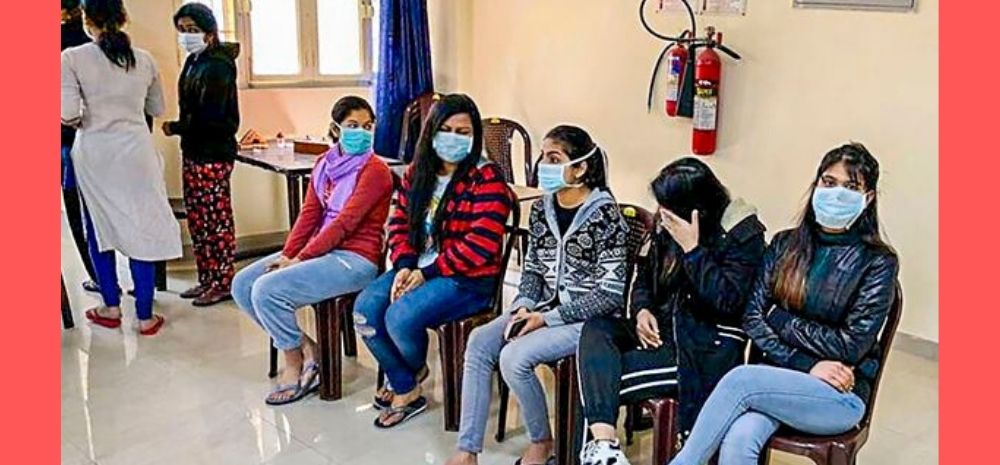FSSAI: Coronavirus Doesn’t Spread Via Chicken, Eggs; Bird Flu Hits Kerala, 13,000 Chickens Will Be Killed

FSSAI: Coronavirus Doesn’t Spread Via Chicken, Eggs; Bird Flu Hits Kerala, 13,000 Chickens Will Be Killed
Coronavirus has entered India and it has caused a country-wide panic!
Food Safety and Standards Authority of India (FSSAI) chief G S G Ayyangar said on March 5 that there is no scientific evidence as to the virus spreading by eating chicken mutton and seafood. He also asserted that the virus would not survive in higher temperatures.
Meanwhile, Bird flu virus was confirmed in two poultry farms in Kozhikode district of Kerala. Though the disease has not spread to humans, the state Animal Husbandry department has issued high alert in the district.
Read to find out more…
Indian Summer Might Help Fight Coronavirus!
There are at least 39 confirmed cases of coronavirus infection in India.
Amidst the alarms that the infection could spread through eating chicken, mutton and seafood, FSSAI CEO said there is a misunderstanding amongst the people about this. “I am a scientist, I will not buy this argument,” Ayyangar told the reporters.
Ayyangar says, “It is basically an animal virus. Let us leave it to scientists to figure out how it has been transmitted…however, ours is a tropical country and once the temperature crosses 35-36 degrees celsius, no virus will survive.”
In addition he also stated, “Let us pray to God that winter ends and temperature rises. We have to take precautions. We have to be on our toes.”
Surrounding the misconceptions, on March 2, poultry breeders demanded a relief package from the government claiming that the sector has incurred heavy losses of around Rs 1,750 crore in a month due to fake news that eating chicken could spread coronavirus.
The All India Poultry Breeders Association had said in a representation to the Ministry of Animal Husbandry, poultry bird prices have plunged to Rs 10-30 per kg at farm gate level due to a slump in chicken demand while the average cost of production is Rs 80 per kg.
Addressing the event on nutrition and functional foods, Hexagon Nutrition Managing Director Vikram Kelkar said prices of vitamin supplements have been volatile recently and spread of coronavirus has affected the supply across the world.
Vaccine Development Will Require a Complex Process!
Ayyangar, who has been with Indian Council of Medical Research (ICMR) said it is a matter of time that a vaccine for coronavirus will be developed as India has a good track of handling viruses. Development of a vaccine will depend on the complexity of the virus. He gave an example of how the Ebola virus and avian flu was handled well in the country.
Ayyangar said at an event organised by industry body Assocham, “The government is making all efforts to isolate the virus. “Once we are able to isolate the virus, then it takes some time to find a vaccine to counter the virus,”
Amidst Coronavirus, Chicken Infected By Bird Flu in Kerela!
The last major outbreak of bird flu in 2016, was among ducks in Alappuzha district, mainly in Kuttanad. Thousands of ducks died and were killed following the outbreak. It had badly affected the duck farmers at that time.
The bird flu was found to have spread in a farm at Vengara and Kodiyathur in Kerala. The state Animal Husbandry department has decided to kill more than 12,900 chickens.
Several birds have died in the farms in the last few days. The presence of the virus was confirmed after tests from the laboratory at Bhopal returned positive. After the virus was confirmed, an immediate meeting of various departments was held in Kozhikode collectorate on March 7.
The department which constitutes 25 teams, which includes teams of five members each is handling the issue. The department has alerted and informed everyone who lives within a 10 kilometre radius of these farms to remain vigilant.
Kerala Health Minister KK Shailaja told the media in Thiruvananthapuram on March 7, “Nothing to worry about the bird flu. When it’s summer, such diseases will affect the birds. The last big outbreak of the bird flu was in 2016, when numerous ducks died. Teams comprising health and veterinary departments are actively trying to avoid the spread of the disease. All arrangements have been done to cull the birds. We have to be very careful in 2020. As it’s a cyclical year, there is a possibility of an increase in contagious diseases. It may be because of climatic changes. That doesn’t mean we should be scared. Just follow the instructions given by the Health department.”

Comments are closed, but trackbacks and pingbacks are open.